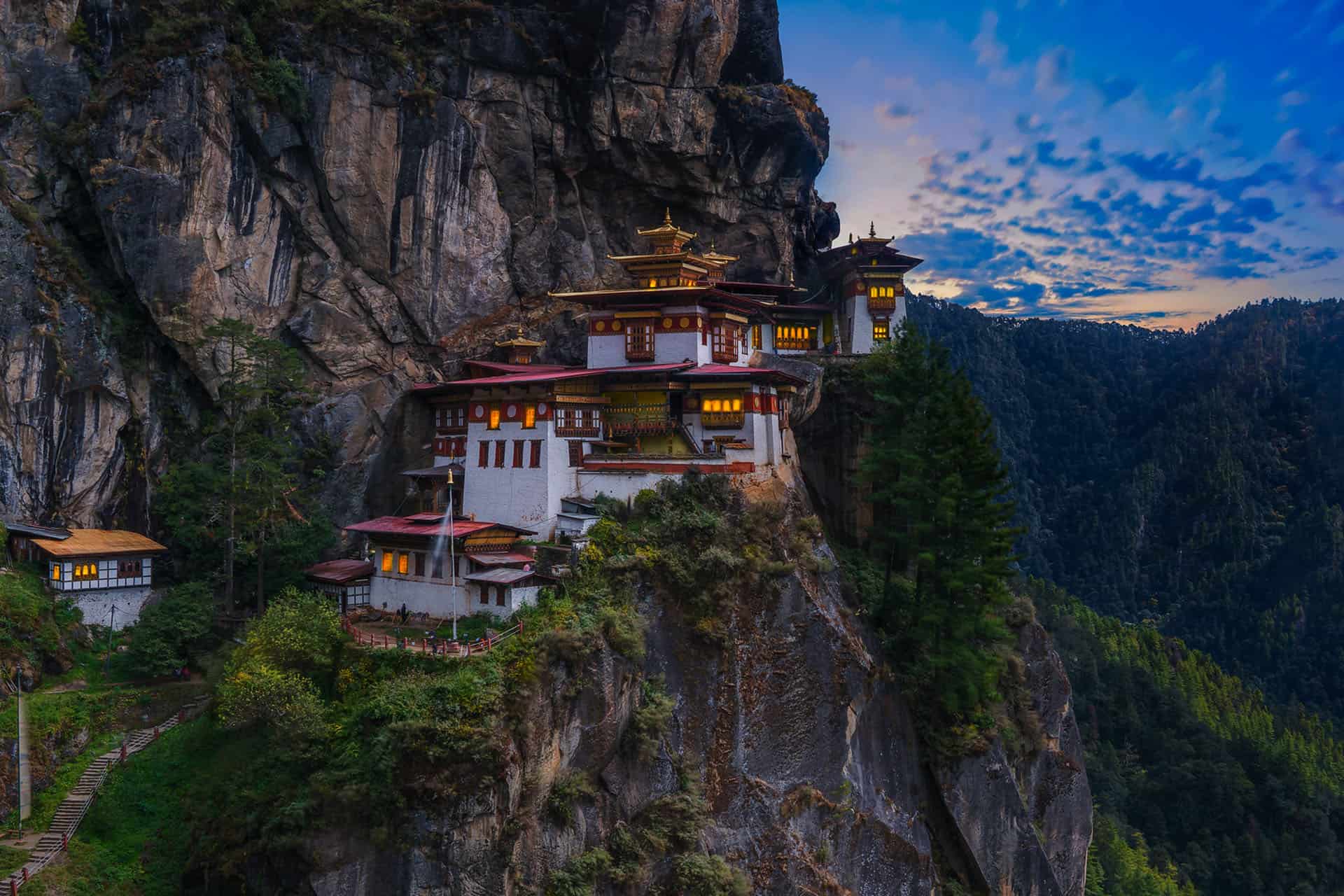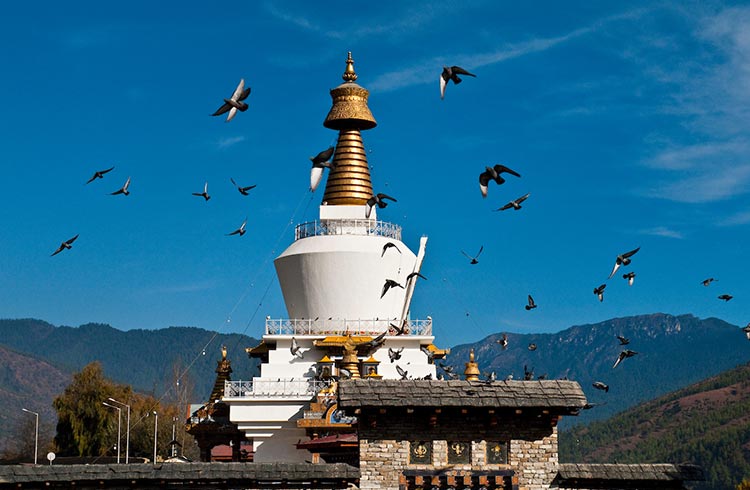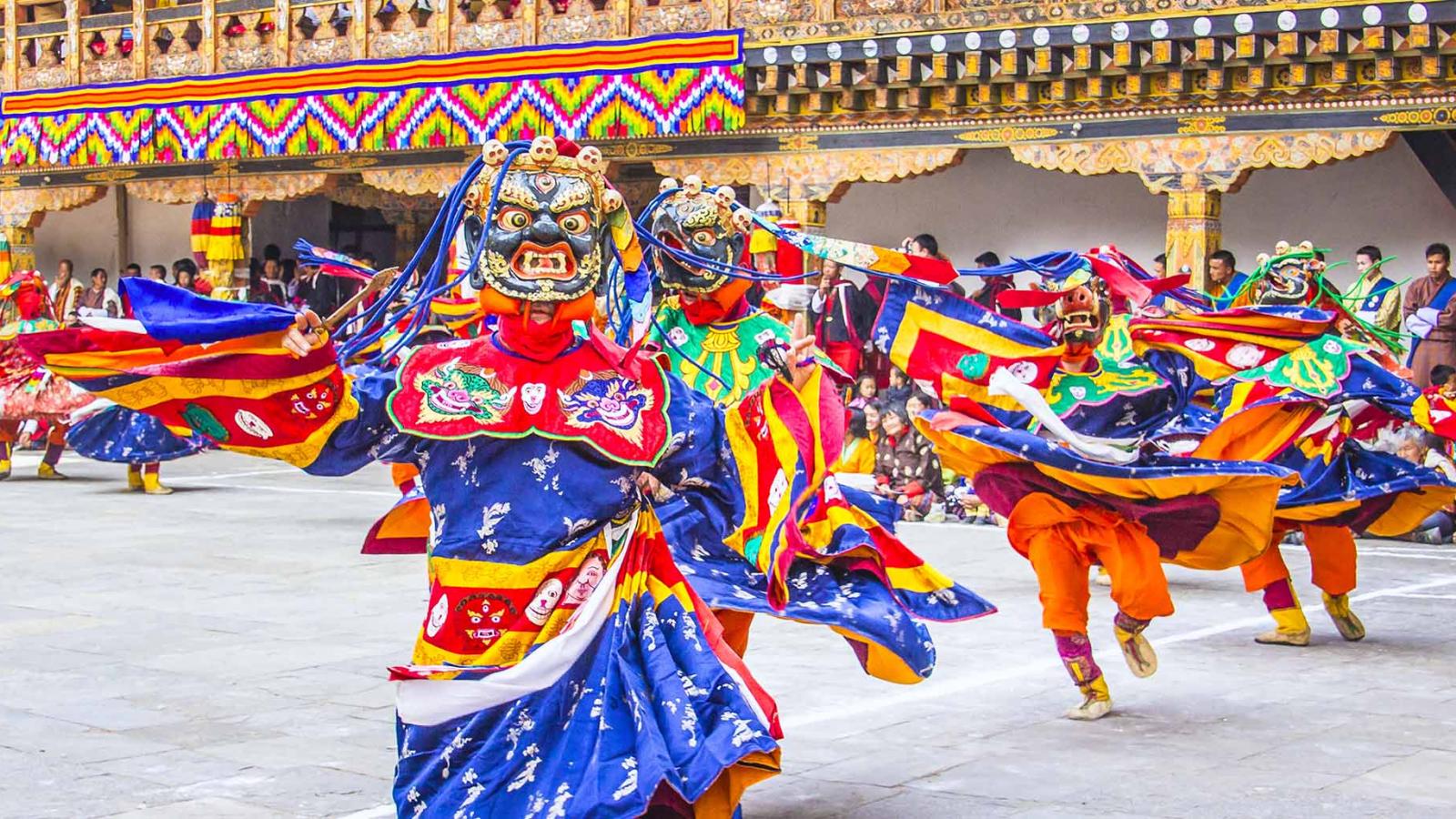Your Ultimate Guide to Experiencing Bhutan: Tips for New Zealand Tourists
Introduction
Overview of Bhutan
Bhutan, a landlocked country nestled in the Himalayas, is known for its rich culture, stunning landscapes, and strong emphasis on Gross National Happiness over GDP. With its traditional architecture, monasteries, and festivals, Bhutan offers a unique experience for travellers seeking authenticity. The country's commitment to preserving its environment and culture sets it apart from other destinations.
Comparison between Bhutan and New Zealand
While Bhutan and New Zealand both boast breathtaking natural beauty, the two countries differ in many ways:
- Bhutan focuses on sustainable tourism, while New Zealand has a more established tourism industry.
- Bhutan's culture is deeply rooted in Buddhism, whereas New Zealand has a Maori heritage.
- Bhutan restricts tourist numbers to preserve its culture and environment, while New Zealand welcomes a larger influx of tourists.
- Both countries offer outdoor adventures, but Bhutan's emphasis on spirituality adds a unique aspect to its activities.

Travel Planning
Visa requirements
When it comes to planning your trip to Bhutan, one essential aspect to consider is the visa requirements. Unlike many countries, Bhutan has a unique system in place. To visit Bhutan, you must book your trip through a licensed Bhutanese tour operator, who will arrange your visa for you. This means you cannot apply for a visa independently; it must be facilitated through a tour package.
Best time to visit
Choosing the right time to visit Bhutan can greatly enhance your experience. The best time to visit Bhutan is during the spring and autumn seasons, from March to May and September to November, respectively. These seasons offer pleasant weather, clear skies, and vibrant festivals like Paro Tsechu. However, each season has its unique charm, so consider your preferences when planning your trip.

Cultural Etiquette
Dress Code
When it comes to visiting Bhutan, respecting cultural norms is key. The traditional dress, the gho for men and the Kira for women is not only elegant but also a symbol of Bhutanese identity. While travellers are not required to wear these garments, it's recommended to dress modestly and respectfully, especially when visiting religious sites. Here are some tips on dressing appropriately in Bhutan:
- Avoid wearing revealing clothing.
- Opt for comfortable and modest attire.
- Carry a scarf to cover your shoulders when necessary.
Respect for Local Customs
Embracing local customs is a fantastic way to immerse yourself in Bhutan's rich cultural heritage. From taking off your shoes before entering temples to greeting others with a "Kuzuzangpo" (hello), showing respect for local traditions goes a long way in fostering meaningful interactions with the Bhutanese people. Here are some ways to show respect for local customs:
- Learn a few basic Dzongkha phrases.
- Participate in local festivals or rituals.
- Follow any specific customs or traditions observed in different regions of Bhutan.

Must-Visit Destinations
After exploring Bhutan's cultural etiquette, it's time to delve into the breathtaking must-visit destinations that this enchanting country has to offer. Whether you are a culture seeker or an adventure enthusiast, Bhutan has something for everyone.
Paro Taktsang (Tiger's Nest)
- Perched precariously on a cliffside, the iconic Tiger's Nest monastery is a sacred site that epitomizes Bhutan's spiritual essence.
- Embark on a challenging but rewarding hike to reach this architectural marvel, surrounded by lush forests and panoramic vistas.
- Legend has it that Guru Rinpoche flew to this spot on the back of a tigress, making it a site of pilgrimage for Buddhists worldwide.
Punakha Dzong
- Marvel at the grandeur of Punakha Dzong, a majestic fortress that stands at the confluence of two rivers.
- This architectural masterpiece serves as both an administrative centre and a symbol of Bhutanese heritage.
- Don't miss the vibrant Punakha Tshechu festival held here, showcasing colourful masked dances and religious rituals.
These iconic destinations promise to leave an indelible mark on your Bhutanese escapade.
Outdoor Adventures
Hiking in the Himalayas
Embark on a thrilling journey through the majestic Himalayan trails to witness breathtaking views and immerse yourself in the natural beauty of Bhutan. Hiking in the Himalayas offers an unparalleled experience that connects you with the serene landscapes and spiritual essence of the region. Here are some tips for an unforgettable hiking adventure:
- Pack Wisely: Ensure you have essentials like sturdy hiking boots, layers of clothing, water, and snacks.
- Stay Hydrated: The high altitudes can be demanding, so keep hydrating throughout your hike.
- Respect Nature: Leave no trace and preserve the pristine environment that surrounds you.
White-water Rafting
For those seeking an adrenaline rush, white-water rafting in Bhutan's crystal-clear rivers is a must-try activity. Imagine navigating through the rapids surrounded by lush forests and towering mountains. Here's what you need to know:
- Safety First: Always follow your guide's instructions and wear proper gear.
- Thrilling Rapids: Experience the thrill of conquering various grades of rapids, suitable for both beginners and seasoned rafters.
- Spectacular Scenery: Enjoy the scenic views as you ride the rapids, making your adventure even more breathtaking.
Cuisine and Dining
Traditional Bhutanese Dishes
Bhutanese cuisine is a delightful reflection of the country's rich culture and traditions. Exploring the diverse flavours of Bhutan is an essential part of immersing yourself in the local experience. Here are some traditional dishes you must try:
- Ema Datshi: A spicy dish made with chilli peppers and cheese, considered the national dish of Bhutan.
- Phaksha Paa: Pork cooked with red chillies, radishes, and other spices.
- Momos: Steamed dumplings filled with meat or vegetables, a beloved snack in Bhutan.
- Suja: Butter tea, a staple beverage served during ceremonies and gatherings.
Dining Etiquette
When dining in Bhutan, respecting local customs is crucial. Here are some dining etiquette tips to keep in mind:
- Always wash your hands before and after a meal.
- It is polite to wait for the host to start eating before you begin.
- Use your right hand for eating, as the left hand is considered unclean.
- Do not waste food; finish what you put on your plate to show appreciation.
Accommodation Options
After a day filled with outdoor adventures and cultural exploration, where you rest your head matters, in Bhutan, you have a range of accommodation options to choose from, each offering a unique experience tailored to your preferences.
Hotels vs. Homestays
- Hotels: If you prefer the comfort and amenities of a hotel, Bhutan has a variety of options ranging from boutique lodges to luxury resorts. Hotels in Bhutan often provide a high level of service and comfort, making them perfect for travellers seeking a pampered stay.
- Homestays: For a more immersive cultural experience, consider staying in a traditional Bhutanese homestay. Living with a local family offers a glimpse into everyday life in Bhutan, allowing you to connect with the culture on a deeper level.
Luxury vs. Budget stays
- Luxury: Indulge in opulence and extravagance at luxury accommodations in Bhutan. These high-end properties offer top-notch facilities, stunning views, and personalized service, ensuring a lavish and unforgettable stay.
- Budget: Travelers on a budget need not worry; there are affordable guesthouses and budget accommodations scattered throughout Bhutan. While simpler in amenities, these stays provide a comfortable and authentic experience without breaking the bank.
Shopping and Souvenirs
After immersing yourself in Bhutan's rich culture and natural beauty, it's only fitting to bring a piece of this enchanting kingdom back home with you. Shopping for handicrafts and exploring local markets offers a glimpse into Bhutan's artisanal traditions and vibrant daily life.
Handicrafts
- Bhutan boasts a treasure trove of exquisite handicrafts, including intricate handwoven textiles, delicate Thangka paintings, and beautifully crafted wooden items like prayer wheels and masks.
- Watching skilled artisans at work in places like Thimphu's Handicrafts Market is a unique experience that adds depth to your souvenir hunting.
Local Markets
- Wander through bustling marketplaces like the Centenary Farmer's Market in Thimphu or the weekend market in Paro to sample local delicacies and shop for souvenirs amidst a buzzing atmosphere.
- Don't miss the chance to haggle and chat with local vendors, as they often have fascinating stories to share about their crafts and products.
Exploring these vibrant shopping hubs allows you to support local artisans while bringing home reminders of your unforgettable Bhutanese journey.
Transportation Tips
Getting around Bhutan
When it comes to navigating Bhutan, the country’s well-connected road networks offer stunning views but can be challenging due to the mountainous terrain. Here are some tips to make your transportation smoother:
- Road Travel: Hiring a car or using public buses are common modes of transport. Be prepared for winding roads and occasional traffic delays.
- Domestic Flights: If you prefer a quicker option, domestic flights operate between Paro and other cities like Bumthang and Trashigang.
- Taxi Services: Taxis are available in major towns for shorter distances.
Hiring a local guide
Exploring Bhutan with a local guide can enhance your experience by providing insights into the culture, history, and hidden gems of the country. Here are some benefits of hiring a local guide:
- Cultural Understanding: Guides offer cultural context and facilitate interactions with locals.
- Safety: Guides are well-versed in navigating Bhutan's terrain and can ensure a safe journey.
- Customized Itineraries: Guides can tailor activities to your interests for a personalized experience.
Health and Safety
Altitude Sickness Prevention
After immersing yourself in Bhutan's vibrant culture and exploring its breathtaking landscapes, it's crucial to prioritize your well-being. Altitude sickness can affect travellers to high-altitude destinations like Bhutan, so here are some tips to help prevent it:
- Stay hydrated: Drink plenty of water to combat the effects of high altitude.
- Acclimatize gradually: Allow your body time to adjust to the altitude by taking it easy for the first few days.
- Consider medication: Consult your healthcare provider about medications like acetazolamide to prevent altitude sickness.
Travel Insurance
Before embarking on your Bhutan adventure, make sure you have adequate travel insurance. Here's why it's essential:
- Medical emergencies: Ensure you are covered for any unexpected health issues during your trip.
- Trip cancellations: Protect your investment in case unforeseen circumstances force you to cancel or cut short your journey.
Language and Communication
Basic Dzongkha Phrases
One of the beautiful aspects of immersing yourself in a new culture is learning the local language. In Bhutan, Dzongkha is the national language, and learning a few basic phrases can greatly enhance your travel experience. Here are some essential Dzongkha phrases to help you communicate with locals:
- Kuzuzangpo la (Hello)
- Kaadinchhe la (Thank you)
- Nga chi mo? (How are you?)
- Joen-pa-leg-so (Goodbye)
- Thug-jay-che (Please)
Learning and using these phrases can show your respect for the local culture and make interactions more meaningful and enjoyable.
Language Barriers
While Dzongkha is the official language, English is widely spoken in tourist areas. However, you may encounter language barriers in more remote regions. Here are some tips to overcome language obstacles:
- Use simple and clear language
- Utilize gestures and non-verbal communication
- Carry a translation app or dictionary for assistance
Embracing the language differences can lead to memorable encounters and deeper connections with the Bhutanese people.
Sustainable Travel
After immersing yourself in the rich culture and natural beauty of Bhutan, it's essential to consider sustainable travel practices as a responsible traveller. By respecting the environment and supporting local communities, you can contribute positively to the destinations you visit.
Respect for the environment
- Pack Light: Reduce waste by packing reusable items and saying no to single-use plastics.
- Leave No Trace: Follow the principles of "Leave No Trace" by taking your trash with you and leaving natural spaces as you found them.
- Choose Eco-friendly Activities: Opt for eco-friendly tours and activities that minimize environmental impact.
- Conserve Resources: Be mindful of water and energy usage to reduce your footprint on the environment.
Supporting local communities
- Shop Local: Purchase souvenirs and goods from local artisans to support the community directly.
- Eat Local: Enjoy meals at locally-owned restaurants to contribute to the local economy.
- Respect Local Customs: Learn about and respect the traditions and customs of the communities you visit.
- Volunteer: Consider volunteering for local initiatives or conservation projects to give back to the community.
By incorporating these sustainable travel practices, you can help preserve Bhutan's natural beauty and support its local communities for future generations to enjoy.
Photography Guidelines
Respect for Privacy
When capturing the beauty of Bhutan through your lens, it's essential to respect the privacy of the locals. Here are some tips to ensure you are considerate of their privacy:
- Always ask for permission before photographing individuals, especially monks or locals, going about their daily lives.
- Respect any signs indicating no photography zones, particularly in religious sites or private residences.
- Avoid taking intrusive shots that make people uncomfortable or invade their personal space.
Best Photography Spots
Bhutan is a photographer's paradise with breathtaking landscapes and rich cultural heritage. Here are some of the best photography spots to capture the essence of Bhutan:
- Dochula Pass - Offering panoramic views of the Himalayas and 108 chortens.
- Phobjikha Valley - Known for its pristine beauty and the endangered black-necked cranes.
- Thimphu - The capital city with a mix of traditional and modern architecture provides great photo opportunities.
Remember, capturing the soul of Bhutan is not just about the perfect shot but also about respecting the beauty and privacy of this enchanting land.

Cultural Festivals
Tsechus
After immersing yourself in Bhutan's rich culture and traditions, experiencing a Tsechu is a must. Tsechus are vibrant religious festivals held across Bhutan, celebrating Guru Rinpoche, the patron saint of Bhutan. These lively events feature masked dances, colourful costumes, and traditional music, showcasing the country's spiritual heritage. Attending a Tsechu allows you to witness ancient rituals and performances that have been preserved for centuries. The atmosphere is filled with devotion, joy, and a sense of community as locals and visitors come together to celebrate.
Festival Calendar
To make the most of your Bhutan travels, it's essential to plan your visit around the festival calendar. Here are some major Tsechus and cultural festivals in Bhutan:
- Paro Tsechu (March-April)
- Thimphu Tsechu (September-October)
- Punakha Drubchen (February-March)
- Jambay Lhakhang Drup (October-November)
Marking these dates on your travel itinerary ensures you experience the magic of Bhutan's cultural celebrations firsthand.

Departure and Departure
Departure checklist
As your incredible journey to Bhutan comes to an end, it's essential to ensure a smooth departure. Here is a departure checklist to help you wrap up your trip seamlessly:
- Double-check your flight tickets and confirm your departure time.
- Pack your belongings carefully to avoid leaving anything behind.
- Settle any outstanding bills at your accommodation and for any services used.
- Exchange any leftover Bhutanese Ngultrum in your local currency.
- Collect any souvenirs or items you purchased during your stay.
- Express your gratitude to the locals and guides for their hospitality.
Reflecting on your Bhutan experience
Now that you're back home take a moment to reflect on your Bhutan experience. Consider these points:
- What were the most memorable moments of your trip?
- How did the culture and landscape of Bhutan impact you?
- Did you learn anything new about yourself during your journey?
- How can you incorporate the lessons learned in Bhutan into your daily life?
Leaving Bhutan may mark the end of your physical journey, but the memories and experiences you've gained will stay with you forever.
